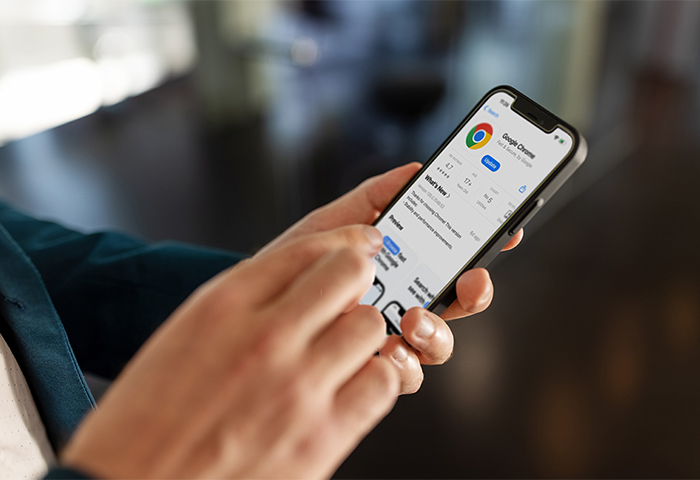Why should I block pop-ups?
The benefit of blocking pop-ups is that it stops ads displaying on your screen and distracting you from your work. But along with serving ads, pop-ups can also contain malware, so blocking pop-ups can help keep your activity private and your computer running smoothly.
Of course, some pop-ups help websites perform as intended — for example, pop-ups can serve as shopping carts, map widgets, sign-up fields, etc. So if you block pop-ups altogether, some websites may not be able to serve you effectively. And even if you block all pop-ups, some ads will likely still get through.
Both Microsoft Edge and Internet Explorer have pop-up blocker tools that let you completely disable or enable pop-ups, or block pop-ups for some websites while allowing pop-ups for others. The Edge pop-up blocker is on by default in some versions of the browser, while it’s off in others. But in all versions of Edge and IE, the built-in browser pop-up blocker is fully customizable.
How to stop pop-ups in Microsoft Edge on Windows 10
Here’s how to enable the Microsoft Edge pop-up blocker in Windows 10:
-
Open the Microsoft Edge browser and click the three horizontal dots in the top right of the browser window.

-
Click Settings.

-
Click Cookies and site permissions.

-
Scroll down and click Pop-ups and redirects.

-
Turn the setting for Block (recommended) to the on position.

With Block now enabled, the browser will automatically stop Edge pop-ups. If you’re wondering how to disable the pop-up blocker on Microsoft Edge altogether, simply toggle Block (recommended) to the off position.
How to allow pop-ups on specific sites
Some pop-ups are useful, especially those used for maps, shopping carts, surveys, games, videos, sign-up forms, etc. If certain windows aren’t opening on a website you’re using, it could be because you’re blocking pop-ups.
Here’s how to allow pop-ups on Edge on specific sites while block others:
-
Open the Edge browser and click the three horizontal dots in the top right.
-
Click Settings, then click Cookies and site permissions.
-
Scroll down and click Pop-ups and redirects.
-
With the setting for Block (recommended) switched to the on position, click Add next to Allow.

-
Enter the address of the website you want to allow pop-ups on, and click Add.

Some pop-ups are also ads that help websites generate revenue. So if you want to support the sites you enjoy, you can unblock ads for your favorite sites by adding them to your allow list.
Along with allowing pop-ups for certain sites, you can also block specific sites by adding them through the Block window in the Pop-ups and redirects menu. Follow the same steps above, but instead of adding websites to the Allow list, add them to the Block list.
How to stop system pop-ups on Windows 10
Managing Edge or IE pop-up blocker settings is a good place to start, but it’s not just web pages that can clutter you with pop-ups. Windows operating systems themselves are a well-known culprit.
Windows 10 popups may ask you to purchase Office or other Microsoft programs, advertise new products, or “remind” you about Microsoft-related news and offers.
Here’s how to stop pop-ups in Windows 10:
How to stop pop-ups in Windows 10 for Office or OneDrive notifications
-
Open any folder.

-
Click the View tab at the top of the window.

-
Click Options on the right-hand side. This will open a new window.

-
In the new window, click the View tab.

-
Scroll down to Show sync provider notifications. Uncheck the box and then click Apply.

That’s how to stop pop-ups on Windows 10 for Office and OneDrive pop-ups.
How to stop pop-ups and notifications from Windows 10 programs
It’s also possible to block pop-ups from Windows 10 programs that you use often, as well as from Microsoft’s tips and suggestions notifications.
-
Start typing “Notifications” in the Windows 10 search bar. Click on Notification & actions settings.

-
Under Notifications, toggle the setting for Get notifications from apps and other senders to the off position. Uncheck the bottom three boxes.

If you don’t want to completely stop pop-ups from Windows 10 programs, you can allow certain apps — such as Skype or Zoom — to send you notifications by flipping the toggle back on and checking the show reminders about incoming VoIP calls on the lock screen option. You can further customize your notifications by checking or unchecking the various boxes listed in the menu.
How to enable or disable pop-ups in Internet Explorer
Pop-up blocker settings in Internet Explorer can also be customized to allow all pop-ups, block all pop-ups, or allow or block only some pop-ups.
Here’s how to enable or disable pop-ups in Internet Explorer:
-
Launch Internet Explorer and open the Tools menu by clicking on the gear icon. Select Internet options.

-
Click the Privacy tab in the new window.

-
Check or uncheck Turn on Pop-up Blocker to disable or allow all pop-ups on IE. To allow pop-ups on IE only for certain sites, click Settings after turning on the pop-up blocker.

-
Under Address of website to allow, enter the URL of the webpage you want to enable pop-ups for, and then click Add. Your list of allowed sites will appear in Allowed sites. Continue for any other websites you want to add.

The pop-up blocker on Internet Explorer 11, or IE11, can be configured the same way via the same Pop-up Blocker Settings window.
Manage pop-ups on other browsers on Windows 10
If Chrome is your Windows 10 browser of choice, check out our guide to blocking or allowing pop-ups in Chrome. If you use Firefox, you can allow and block pop-ups there, too.
Pop-ups can also distract you on a Mac, so learn how to block and allow Safari pop-ups if you’re an Apple user. And be sure to check out our dedicated guides to the best browsers for privacy and security.
What to do if the pop-up blocker doesn't work
If you’re still getting pop-ups even with the pop-up blocker enabled, your device could be infected with adware — a particularly invasive form of malware that can cause your browser to slow to a crawl — or a browser hijacker could have changed your default browser settings.
If that’s the case, run a malware scan to get rid of the infection. And also consider updating your browser, disabling extensions, blocking third-party cookies, and cleaning up your PC more generally to keep your system smooth and address any exploitable vulnerabilities in your software.
Check for updates
Check for official updates to Microsoft Edge, IE10, and IE11. If updates are available, apply them immediately to make sure you get the latest security patches.
How to download updates for Microsoft Edge
Edge normally updates automatically when you restart your browser, but sometimes you may have to download an update manually.
You can type: edge://settings/help in the Edge address bar to jump to the updates menu. You can also get there through the browser settings. Here’s how:
-
In Microsoft Edge, click the three horizontal dots in the top right.

-
Click Settings.

-
Click About Microsoft Edge.

-
If there’s an update available, select Download and install and then click the Restart button to launch your updated browser.

How to change security settings for Internet Explorer
Internet Explorer no longer offers updates (you should switch to Edge instead), but you can still improve your security settings to filter out sites that are getting around the IE pop-up blocker. Here’s how to update security settings on IE:
-
Open Internet Explorer, click Tools (the gear icon), and select Internet Options.

-
Click the Security tab, slide the security level to High, and click Apply.

An Internet Explorer pop-up computer virus can infect your whole system, so no matter what browser version or operating system you use, perform a malware scan to detect and remove any threats that may already have slipped through.
Scan for malware
Malware, especially adware, can be tricky to get rid of. That’s why it’s important to use one of the best antivirus software apps to clear out any adware from Internet Explorer and Edge.
AVG AntiVirus FREE finds all types of malware automatically, quarantines threats, and warns you in real-time about any virus trying to worm its way in. Get world-class protection 24/7 and browse without fear — for free.
Disable extensions
Extensions can sneakily override your browser and allow ads to pop up. Disable any fishy extensions and you may find that your pop-up problem is fixed.
Here’s how to disable extensions in Edge.
-
Open Microsoft Edge. Click the three horizontal dots and then click Settings followed by Extensions.
-
Under Extensions, toggle each extension off.

Block third-party cookies
Cookies help create a smoother browsing experience, but they’re also used to gather information about you and target you with ads — sometimes pop-up ads. Deleting browser cookies may temporarily speed up your browser and get rid of pop-ups, but you can also block cookies altogether for a longer-term solution.
Here’s how to block third-party cookies in Edge:
-
Open Microsoft Edge. Click the three horizontal dots and select Settings.

-
Click Cookies and site permissions. Then click Manage and delete cookies and site data.

-
Toggle the Block third-party cookies setting to the on position.

Clear your browser cache
Cookies and temporary files in your cache don’t just clog up your browser — they can also clutter your work and increase security risks. So, cleaning your browser makes it safer and faster.
Here’s how to clear your browser cache in Microsoft Edge.
-
Open Edge, click the three horizontal dots, and click Settings.

-
Click Privacy, search, and services. Scroll down to the “Clear browsing data” section. Click Choose what to clear next to Clear browsing data now.

-
Click the box under “Time range” to open the drop-down menu. Select All time and then click Clear now.

Temporary files can also bog down your system too. So make sure you know how to clean temporary files on your computer as well as your browser.
Browse pop-up free with a secure browser
Managing pop-ups can be a chore. And that’s just one of the issues our dedicated privacy experts considered when building AVG Secure Browser. Designed from the ground up with privacy and security at the forefront, AVG Secure Browser can help you eliminate pop-up problems automatically.
By forcing sites to encrypt your connection, hiding your activity from web trackers, and blocking ads, AVG Secure Browser offers private, safe, and buttery smooth browsing.














































